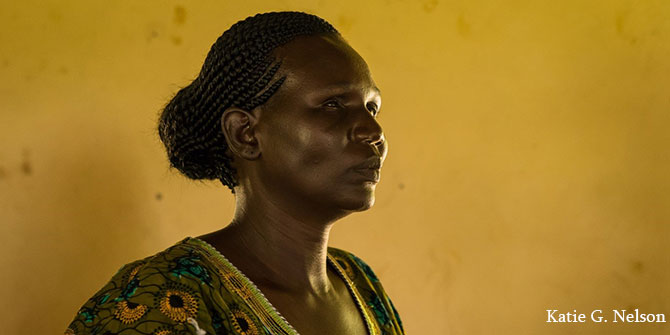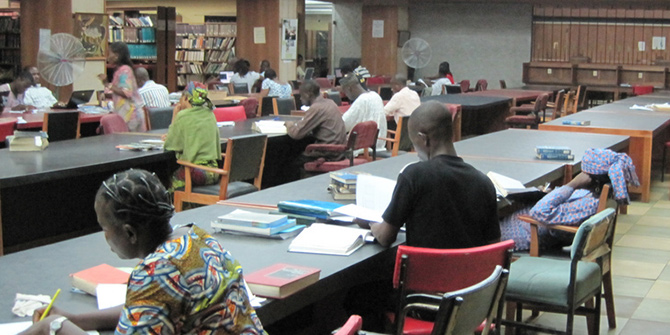In this article, Mwai Daka highlights the impact of climate change on agriculture farming in Zambia, particularly on small-scale farmers. He explains why it is important for Zambia’s Ministry of Agriculture to take a pro-poor stance in order to help small-scale farmers deal with the effects of climate change on the country’s agriculture sector such as the introduction of a non-native insect the fall armyworm.
In the last few years, Southern Africa has suffered extensively from a widespread drought, but more recently, a new threat to the region’s agriculture has emerged – the fall armyworm – which is threatening food production in the region. Zambia has been one of the countries most affected by the plague of armyworms which have devastated maize crops across the country and consequently, threatening the livelihoods of farmers’ and in particular, small-scale farmers located in sparsely populated rural communities.
Small-scale and peasant farmers are already facing a wide variety of challenges, such as droughts, poor sanitary conditions, lack of formal education and land displacement: some of these issues have been detailed by the 2017 Human Rights Watch Report. However, the introduction of a non-native insect presents a new challenge which threatens to increase the inequality gap between large-scale commercial farmers and small-scale farmers.

The inequality gap is increased by this new challenge because it has a major impact on maize crop production which in turn has an impact on Zambia’s main staple food nshima which is made from maize crop. The problem here is that the fall armyworm has had a significant impact on Zambia’s maize crop and therefore it presents a food security threat in a country and region that has high levels of poverty and water shortages.
Mixed with the negative impacts of climate change, food security is further aggravated by poor agrarian strategies put in place by the Ministry of Agriculture. The result is that farmers and in particular, small-scale farmers do not have the required resources nor the adequate support from government agencies to deal with the challenges that can be attributed to climate change such as the introduction of a non-native insect like the fall armyworm.
Small scale agriculture in Zambia has played an important role in poverty alleviation for rural communities which are sparsely populated. However, a poor agrarian strategy continues to undermine the Ministry of Agriculture’s ability to effectively support small-scale farmers, especially when they are faced with climate effects such as droughts, floods and the invasion of the non-native insect.
During the 2016-2017 crop season – running from October to March – the fall armyworm presented major challenges to farmers. This is despite the Ministry of Agriculture’s efforts in introducing the Farmers Input Support Programme (FISP) electronic voucher initiative. The problem here is that the money is always delivered to the farmers late towards the end of the maize crop season.
When compared to large-scale farmers who have the required resources to deal with unexpected circumstances such as droughts, floods and the invasion of non-native insects, small-scale farmers are at a significant disadvantage as they are not adequately equipped to quickly respond and effectively address the impact of climate change on food production. Furthermore, poor staffing and inefficiency in the management of government agencies means that there is not enough capacity to timely assess the overall impact of natural disasters on small-scale farmers, in particular, small scale commercial farmers.
It is clear that a way forward to address this problem is to come up with a long term policy and strategy on addressing the effects of climate change on farming in Zambia. As such, policy makers and politicians should sit down and design a strategy aimed at protecting farmers, especially small scale farmers in times of natural disasters due to climate change. This is because while the Zambian government has been able to attract a significant amount of Foreign Direct Investment which is vital for economic growth and poverty reduction, it is institutional change from within that will make the difference to poverty alleviation and economic transformation.
In particular, the Ministry of Agriculture can implement institutional change that make certain conditions of poverty unacceptable and therefore must be dealt with effectively. For example, making sure those small-scale farmers are given the necessary tools, information and resources to deal; not only with unforeseen circumstances, but also ongoing issues such as policy gaps in agribusiness.
This way, Zambia will be able to transform its economy so that agriculture truly becomes a panacea to the issue of poverty in rural communities.
Mwai Daka (@MwaiDaka) is a Politics postgraduate from the Department of Politics at the University of Sheffield. His research interests are land tenure, food security, and human rights.
The views expressed in this post are those of the author and in no way reflect those of the Africa at LSE blog, the Firoz Lalji Centre for Africa or the London School of Economics and Political Science.





